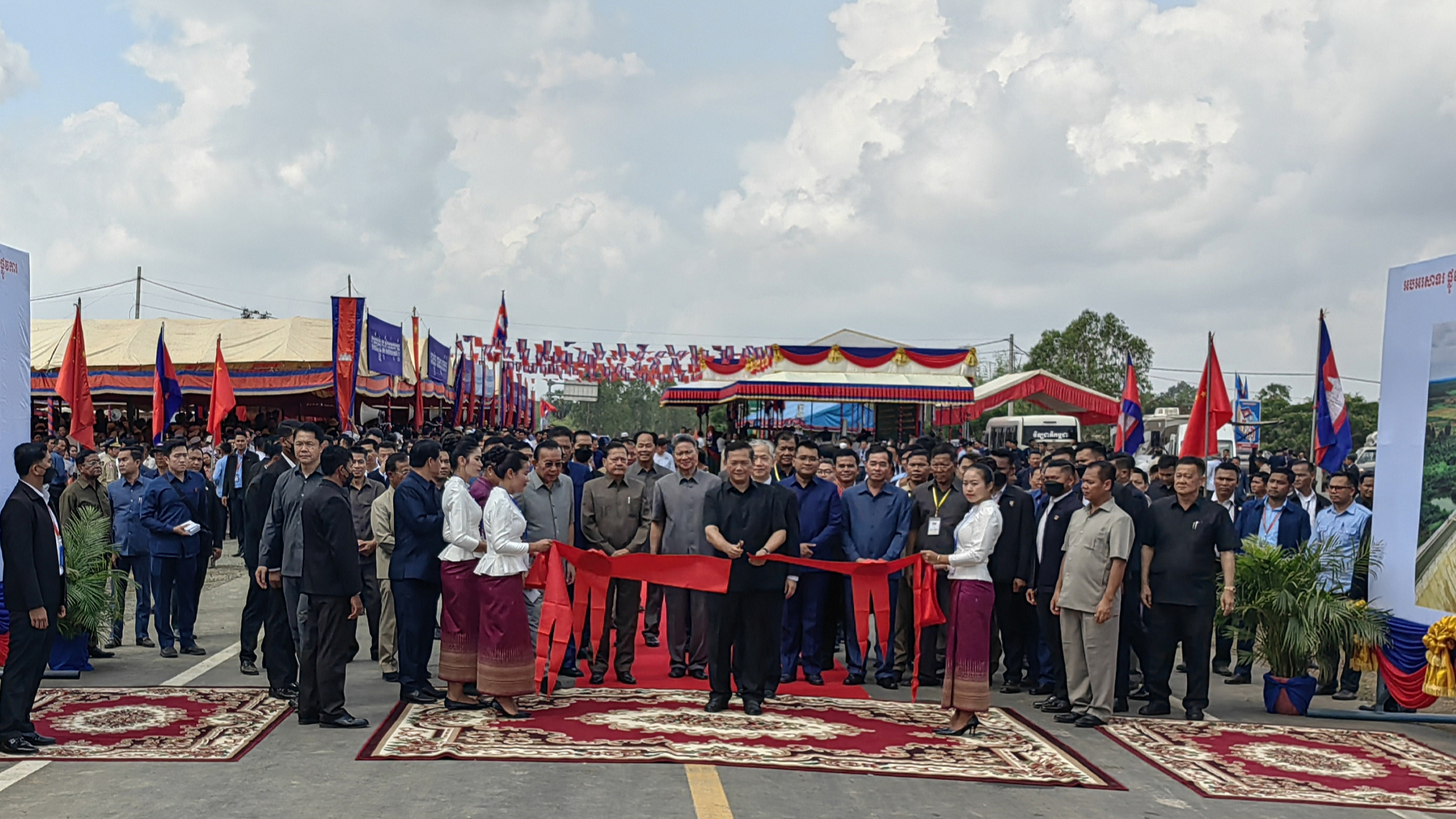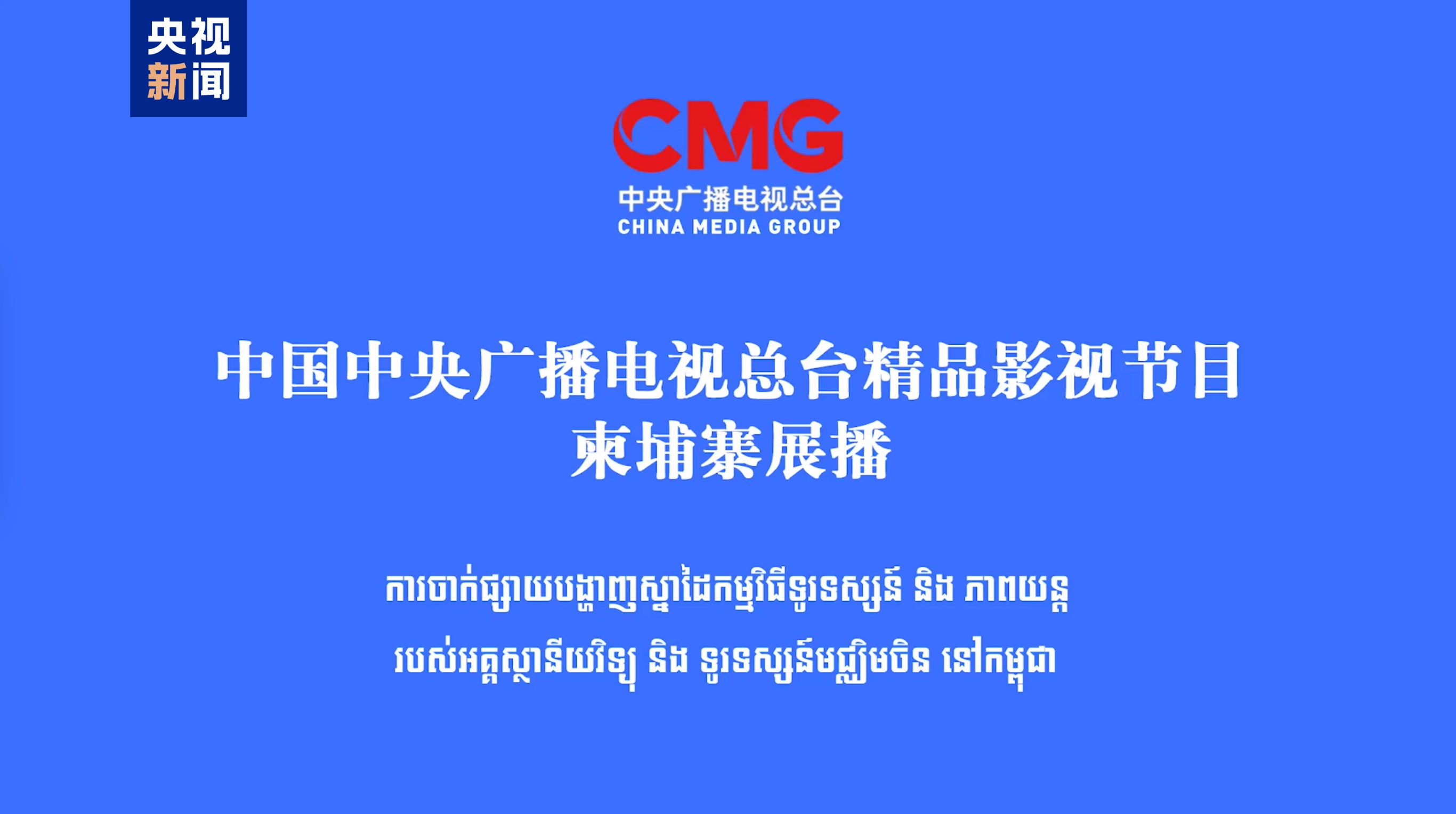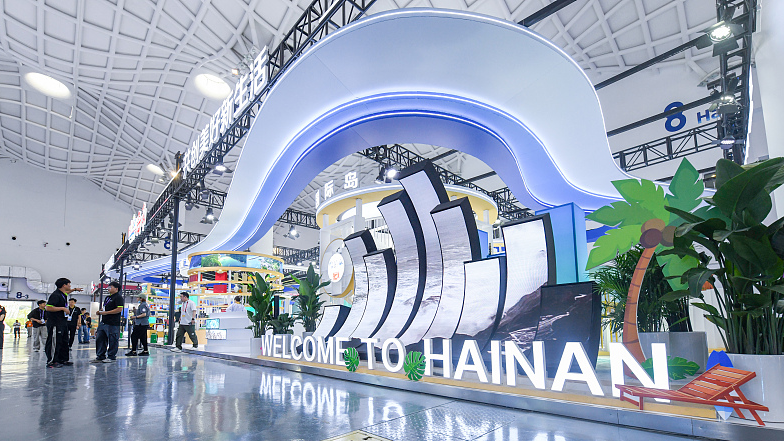By continuing to browse our site you agree to our use of cookies, revised Privacy Policy and Terms of Use. You can change your cookie settings through your browser.
I agree
Search Trends
CHOOSE YOUR LANGUAGE
- Albanian Shqip
- Arabic العربية
- Belarusian Беларуская
- Bengali বাংলা
- Bulgarian Български
- Cambodian ខ្មែរ
- Croatian Hrvatski
- Czech Český
- English English
- Esperanto Esperanto
- Filipino Filipino
- French Français
- German Deutsch
- Greek Ελληνικά
- Hausa Hausa
- Hebrew עברית
- Hungarian Magyar
- Hindi हिन्दी
- Indonesian Bahasa Indonesia
- Italian Italiano
- Japanese 日本語
- Korean 한국어
- Lao ລາວ
- Malay Bahasa Melayu
- Mongolian Монгол
- Myanmar မြန်မာဘာသာ
- Nepali नेपाली
- Persian فارسی
- Polish Polski
- Portuguese Português
- Pashto پښتو
- Romanian Română
- Russian Русский
- Serbian Српски
- Sinhalese සිංහල
- Spanish Español
- Swahili Kiswahili
- Tamil தமிழ்
- Thai ไทย
- Turkish Türkçe
- Ukrainian Українська
- Urdu اردو
- Vietnamese Tiếng Việt
Copyright © 2024 CGTN.
京ICP备20000184号
CHOOSE YOUR LANGUAGE
- Albanian Shqip
- Arabic العربية
- Belarusian Беларуская
- Bengali বাংলা
- Bulgarian Български
- Cambodian ខ្មែរ
- Croatian Hrvatski
- Czech Český
- English English
- Esperanto Esperanto
- Filipino Filipino
- French Français
- German Deutsch
- Greek Ελληνικά
- Hausa Hausa
- Hebrew עברית
- Hungarian Magyar
- Hindi हिन्दी
- Indonesian Bahasa Indonesia
- Italian Italiano
- Japanese 日本語
- Korean 한국어
- Lao ລາວ
- Malay Bahasa Melayu
- Mongolian Монгол
- Myanmar မြန်မာဘာသာ
- Nepali नेपाली
- Persian فارسی
- Polish Polski
- Portuguese Português
- Pashto پښتو
- Romanian Română
- Russian Русский
- Serbian Српски
- Sinhalese සිංහල
- Spanish Español
- Swahili Kiswahili
- Tamil தமிழ்
- Thai ไทย
- Turkish Türkçe
- Ukrainian Українська
- Urdu اردو
- Vietnamese Tiếng Việt
Copyright © 2024 CGTN.
京ICP备20000184号
互联网新闻信息许可证10120180008
Disinformation report hotline: 010-85061466


















Scholars attend the 6th Media Materiality Forum hosted by Tsinghua University's School of Journalism and Communication in Beijing, China, March 29, 2025. /CGTN
There is an urgent need to reframe humanity's relationship with emerging technologies like artificial intelligence (AI) and quantum computing, according to scholars attending the 6th Media Materiality Forum hosted by Tsinghua University's School of Journalism and Communication in Beijing on Saturday.
Professor Liu Hailong from Renmin University of China and Professor Jens Schröter from the University of Bonn, both the event's keynote speakers, told CGTN Digital that technological progress must align with ethical frameworks, cultural diversity and planetary sustainability.
Both scholars criticized viewing technology as mere tools or revolutions, arguing instead for a holistic view of its societal and ecological impacts.
Liu compared Western instrumentalist approaches – where technology is seen as a neutral tool – with East Asian philosophies emphasizing harmony between humans, tools and nature.
"The illusion of infinite computational growth ignores Earth's finite resources," he warned, pointing to AI's massive energy consumption and e-waste.
Professor Liu Hailong from Renmin University of China speaks at the 6th Media Materiality Forum in Beijing, China, March 29, 2025. /CGTN
Schröter echoed this, adding that quantum computing, while promising faster problem-solving, risks eroding data privacy through its ability to crack current encryption systems.
"What I criticize in my talk is the rhetoric of revolution," he said. "I guess we should think more in terms of evolutionary transformation."
Professor Jens Schröter from the University of Bonn talks with reporters during the 6th Media Materiality Forum in Beijing, China, March 29, 2025. /CGTN
On AI, both experts rejected binary narratives. Liu stressed that AI's "creativity" is inherently human-dependent. "Machines process data, but humans define the questions and purposes," he told CGTN. Schröter cited generative AI's disruption of education and creative industries, noting that while generative AI aids productivity, it threatens jobs in law, music and content creation.
While their cultural perspectives differed, both scholars agreed on the need for inclusive, cross-disciplinary collaboration. Liu proposed integrating non-human actors – animals, ecosystems, even energy flows – into media studies to better grasp technology's ripple effects. Schröter urged public participation in shaping AI's trajectory, calling for broad societal discussion about "what technologies we need, what technologies we want and in what form."